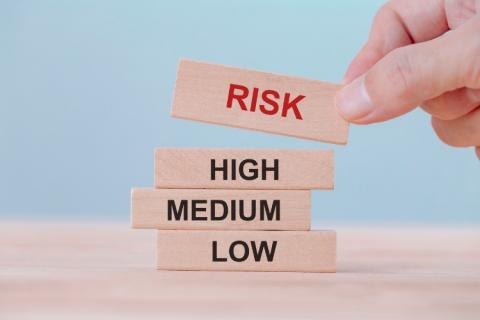Security | Threat Detection | Cyberattacks | DevSecOps | Compliance
Latest Posts
How to Handle a Data Breach Within Your Company
Project Management Lessons Learned From Risk Management
Improve Workflow Collaboration with Slack Integration for ZenGRC
Not long ago, we’d say “slack” to describe not working, as in “slacking on the job.” With the advent of the Slack app, though, the term has become synonymous with productivity. And Slack’s ability to work in tandem with hundreds of applications makes this popular team communication and collaboration tool even more useful.
September 2020: Compliance Certification Roundup
Each month, Reciprocity highlights companies that have earned compliance certifications for information security frameworks. Here’s our September 2020 roundup of recent compliance news from around the United States and around the world.
Data Protection Vs. Cyber Security: Why You Need Both
In recent years, both large and small organizations have been affected by data breaches. Business owners, C-suite executives, and CIOs face the reality that they can be a target of security breaches at any time. These incidents can jeopardize your organization's credibility besides leading to financial and productivity losses.
ISO 27001 Firewall Security Audit Checklist
Because of additional regulations and standards pertaining to information security, including Payment Card Industry Data Security Standard (PCI-DSS), the General Data Protection Regulation (GDPR), Sarbanes-Oxley (SOX), the Health Insurance Portability and Accountability Act (HIPAA), California Consumer Privacy Act (CCPA) and ISO 27001, organizations are putting more emphasis on compliance as well as the auditing of their cybersecurity policies and cybersecurity controls.
How to Implement Effective Compliance Testing
Compliance testing, also known as conformance testing, is a periodic, independent, and objective assessment of compliance-related processes and/or controls. The goal of compliance testing is to determine whether the elements, processes, and controls of your compliance program are designed appropriately and operating as designed. Compliance testing follows an established process and plan as well as a risk-based approach.
August 2020: Compliance Certification Roundup
Each month, Reciprocity highlights companies that have earned compliance certifications for information security frameworks. Here’s our August 2020 roundup of compliance news from around the United States, and around the world.
ISO Audit Tips
During an internal International Organization for Standardization (ISO) audit, your company assesses its quality management system (QMS) to determine if it complies with ISO 9001. Companies use the ISO 9001 standard to demonstrate that they can consistently provide products and services that meet customer needs and regulatory requirements. Organizations also use ISO 9001 to demonstrate that they are continually improving their products, services, and processes.






